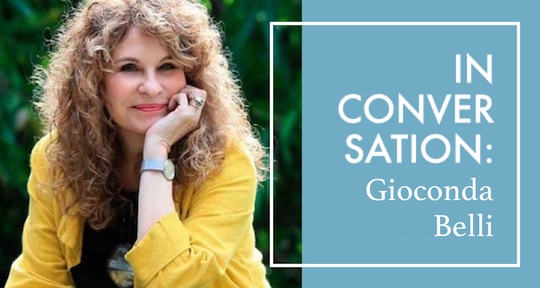Roy G. Guzmán (they/them) was born in Honduras, grew up in Miami, lives in Minnesota, and last year, Graywolf Press put out Catrachos, their first book of poems. In February, the book was a finalist for the Minnesota Book Awards in the poetry category, alongside Ray González, Danez Smith, and Torrin A. Greathouse. Roy debuted with authority, potency, rebelliousness, and nonconformity, but also with pain and sensitivity, with empathy and nostalgia and tenderness, with admiration. Catrachos is filled with references to their childhood in Miami and how it was for them, a poor Central American person, to grow up in a hostile environment. In a country that considered them, in their own words, “an afterthought” and “a second-class citizen.” Catrachos, in a way, serves as a testimony for the experience of the Central American diaspora in the United States. But it’s more. Mucho más.
In Roy’s poems we find, yes, family traditions, but also violence, resistance, what it was like for them to grow up as a queer kid. Catrachos is a beautiful and soothing portrait, not devoid of harsh and urgent criticism toward imperialism and racial violence. Roy, in their debut, speaks with curiosity and tenderness, while acknowledging the devastation caused by colonialism. Trailblazing, the gringos might say.
Last year, Roy and I spoke about all this. About Catrachos, their memories of Honduras, their family, their identity, about considering themselves “the other.” We spoke about Rubén Darío, X-Men, and the Pulse massacre—the basis of a poem they wrote called “Restored Mural for Orlando.” We spoke about being a poet, about being queer, Latinx, mestizx, mulatx, indigenous in the United States and in Honduras.
–José García Escobar
José García Escobar (JGE): First, I wanted to ask you about leaving Honduras and growing up in the U.S. I’m curious about the Central American communities in the U.S. You reference your childhood much in Catrachos, but I feel like it’s often indoors. Were there many Hondurans where you lived?
Roy G. Guzmán (RGG): Miami often gets talked about as this cosmopolitan city, as sort of Mecca of Latin America, right? The Miami that I grew up in was very different than sort of what you see in Texas, what you see in California, where there’s much more solidarity not only among Central Americans but also between Mexicans and Chicanxs people. That’s something that I did not grew up with in Miami. Miami, at least in the nineties, it was much more Caribbean. I grew up with a lot of Dominicans and Cubans. And I think that when it came to the Central American diaspora, many more Nicaraguans. We saw many more Nicaraguans because they were considered political refugees. This is important. There were many Cubans, and they were seen as political refugees. There were Nicaraguans, and they were also seen as political refugees. Then there was us. We were basically seen as immigrants that had made this transition because of economic instability, and so I felt like a second-class citizen. I was less desirable than the political refuge. The other thing was that many Hondurans I grew up with were undocumented. Add that to the equation. This means that our communities were very disconnected. So, I grew up in a place that treated me as an afterthought. It wasn’t until I left Miami and I moved to Chicago, for my undergrad, that I was exposed to a very different kind of resilient. There are conversations that I never had in Miami and suddenly I had, the minute I left. And off course years later when I ended up coming back to Miami, after my master’s, to teach, I was incredibly aware of the power dynamics, the imbalance, the issues with, not just representation, but visibility and invisibility. I was able to understand shame, internalized racism. I was able to understand things like white privilege. I was able to understand anti-Central American discrimination.
JGE: You arrived to Miami in the mid-nineties, right? This was before Hurricane Mitch devastated a large part of Honduras, Guatemala, El Salvador, and Nicaragua as well. After Mitch, did you see more Central Americans arriving to your community?
RGG: Not as many. But I did live the impact of the hurricane. My family, obviously, as part of the diaspora, one of the things that we do as Central Americans in the U.S. is we send money back to our families. So, after the hurricane we had to make sure that our family had a consistent form of funding, so they could get by. Our family would also tell us that they would see bodies left and right, bodies floating in the rivers, or people’s businesses completely destroyed. READ MORE…









